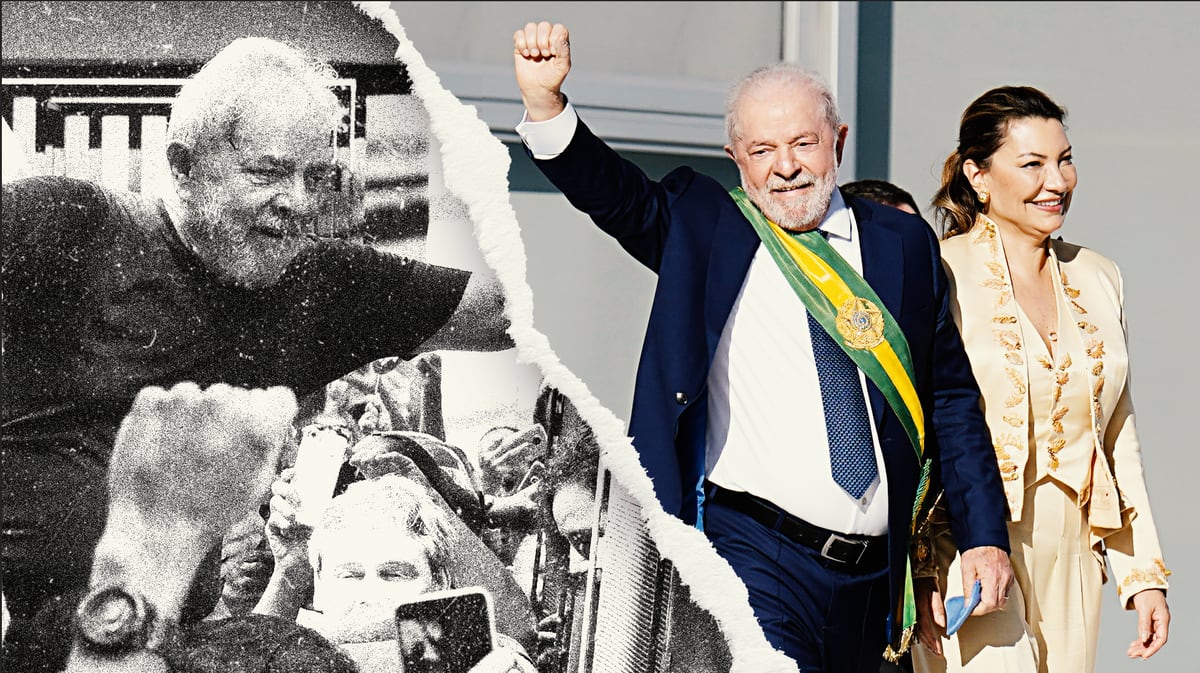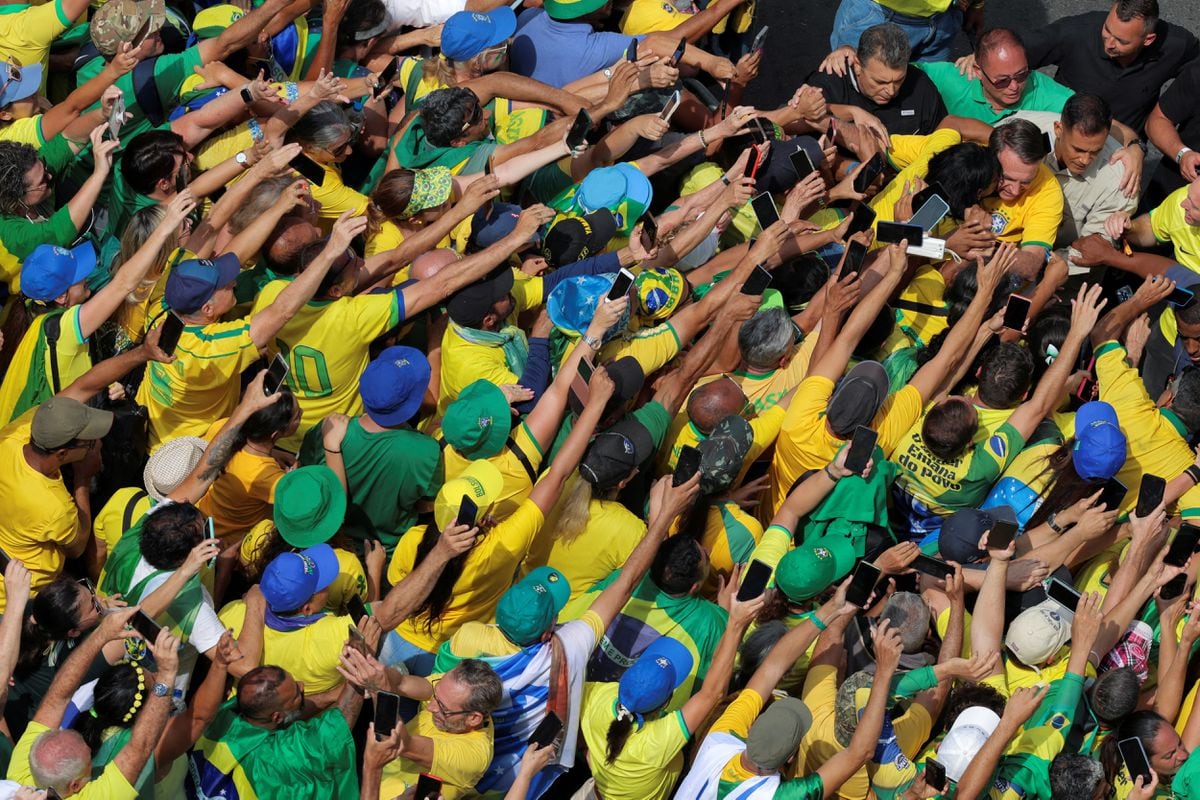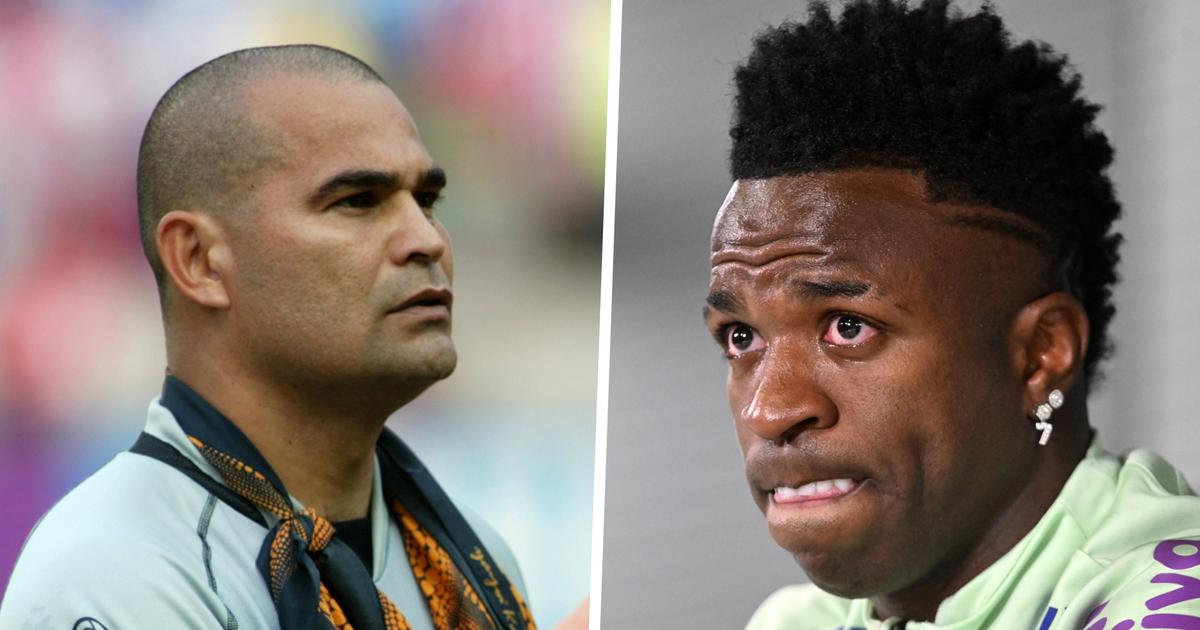Journalist Carol Pires (36 years old, Brasilia) is the author of a fascinating sound profile of Jair Bolsonaro, the
Narrated Portrait
podcast (Spotify, with Spanish version), a project she embarked on after the far-right's unexpected victory in 2018 Pires, co-writer of the Oscar-nominated documentary
Democracia en vertigo
(Netflix), appears on the other side of the screen from the Brazilian capital a few days before the elections to talk about his country, about how conservative it is, about feminism, about the Bolsonarista strategy after the chaos of social networks and sings a
mea culpa
.
Ask.
Why doesn't the feminist movement take off in Brazil with the force that we see in Argentina, Chile or Mexico?
Women in politics are only 15% and it does not seem that this will change much in the elections.
What happen?
Response.
It is, in part, a communication problem.
We need to talk to conservative women, address issues that we share before we get into more difficult issues.
Because, in the end, with the election of Bolsonaro we discover that Brazil is a conservative country.
About two years ago I worked on a documentary series called
Electas
, we looked for elected women in Colombia, Mexico, Chile, Argentina.
We chose several conservative women to see how they reacted to the documentary.
It was very interesting because, despite the fact that they were voters of Bolsonaro, she moved them.
They told us 'I consider myself a feminist, but not an activist'.
For them, feminism is wanting your husband to wash the dishes too, that you earn the same, but military is to go to the street and activism is to show your breasts.
P.
You said that with Bolsonaro's victory you discovered that your country was different from what you believed.
Count, count.
R.
I think I can do my
mea culpa
.
I am part of the progressive press, middle class people, from the university, who dominate the cultural world and education in Brazil.
We had a leftist government proposing progressive discussions, and Lula left power with 90% approval.
I did not think of Brazil as a conservative country.
I remember the first march against Dilma (Rousseff), I worked at Piauí
magazine
(a kind of
The New Yorker
Brazilian).
I cried because there they put Paulo Freire (pedagogue in favor of critical thinking) like a demon, with whom my mother, a teacher of handicapped children in a public school, is in love.
It was a shock.
And I thought 'Where did these people come from?
I was deluded, which is part of the idea for the podcast.
I was part of that press that did not see the wave arrive.
P.
And how do you see the panorama now?
R.
There is a third that supports Bolsonaro no matter what happens.
What else has to happen for them to see what Bolsonaro is like after almost 700,000 deaths from covid, record deforestation, young black people killed every day?
Those people are not going to disappear with the probable re-election of Lula.
They will continue there, with Bolsonaro or with another leader of the extreme right.
P.
After a decade of political upheaval, of effervescence, of being fed up with traditional politics, the favorites in the polls and the third placed (Luiz Inácio Lula da Silva, Jair Bolsonaro and Ciro Gomes) have been in politics since you were a child.
R.
Bolsonaro is the result of the criminalization of politics.
We came from a super traumatic process with the impeachment of Dilma, the Lava Jato, which denounced hundreds of businessmen and politicians, which ended up criminalizing politics itself.
In 2018, Bolsonaro was the only candidate who had not already run for the Presidency.
And people said why not?
People were so mad about politics that they voted for people who are trying to destroy politics.
But it went wrong.
Bolsonaro made a lousy government, with constant attacks on democracy and threats of a coup, which I think people say: 'We better return to our democracy full of defects'.
Q.
To Lula?
A.
Yes, it has managed to become a symbol of democracy itself.
A few days ago, the guy who signed Dilma's impeachment petition announced that he supports Lula.
And I don't know if I celebrate it or get angry because 'you were a little late, right?'
P.
You, who are a veteran of the trade, how do you cover social networks, that parallel universe that seems infinite and difficult to encompass, but very important in Brazil.
R.
Yes, yes, very important.
In the work that I am doing, which is unprecedented, we accompany the work of the CPI (parliamentary investigation commission) that mapped the political actors on the Internet.
You begin to understand that all this chaos is orchestrated by a very small group, a leadership that decides who to attack or what to test.
Send a message to the groups, from top to bottom, who invent memes, dossiers, phrases that distort and test.
And what works, gains capillarity.
It spreads in groups, on Twitter, Telegram... and to give it legitimacy, some tendentious or purely lying media outlets begin to reproduce it.
And the deputies, the children of Bolsonaro... they begin to share it.
And you understand that what started at the top is a cycle.
Subscribe here to the
EL PAÍS América
newsletter and receive all the key information on current affairs in the region.

/cloudfront-eu-central-1.images.arcpublishing.com/prisa/5BOMX5MDUFDO7PQXBXX2X5YOWU.jpg)
/cloudfront-eu-central-1.images.arcpublishing.com/prisa/AYBDQARVBB2WDG6IFPXHYFIMBM.jpg)








/cloudfront-eu-central-1.images.arcpublishing.com/prisa/KMEYMJKESBAZBE4MRBAM4TGHIQ.jpg)



